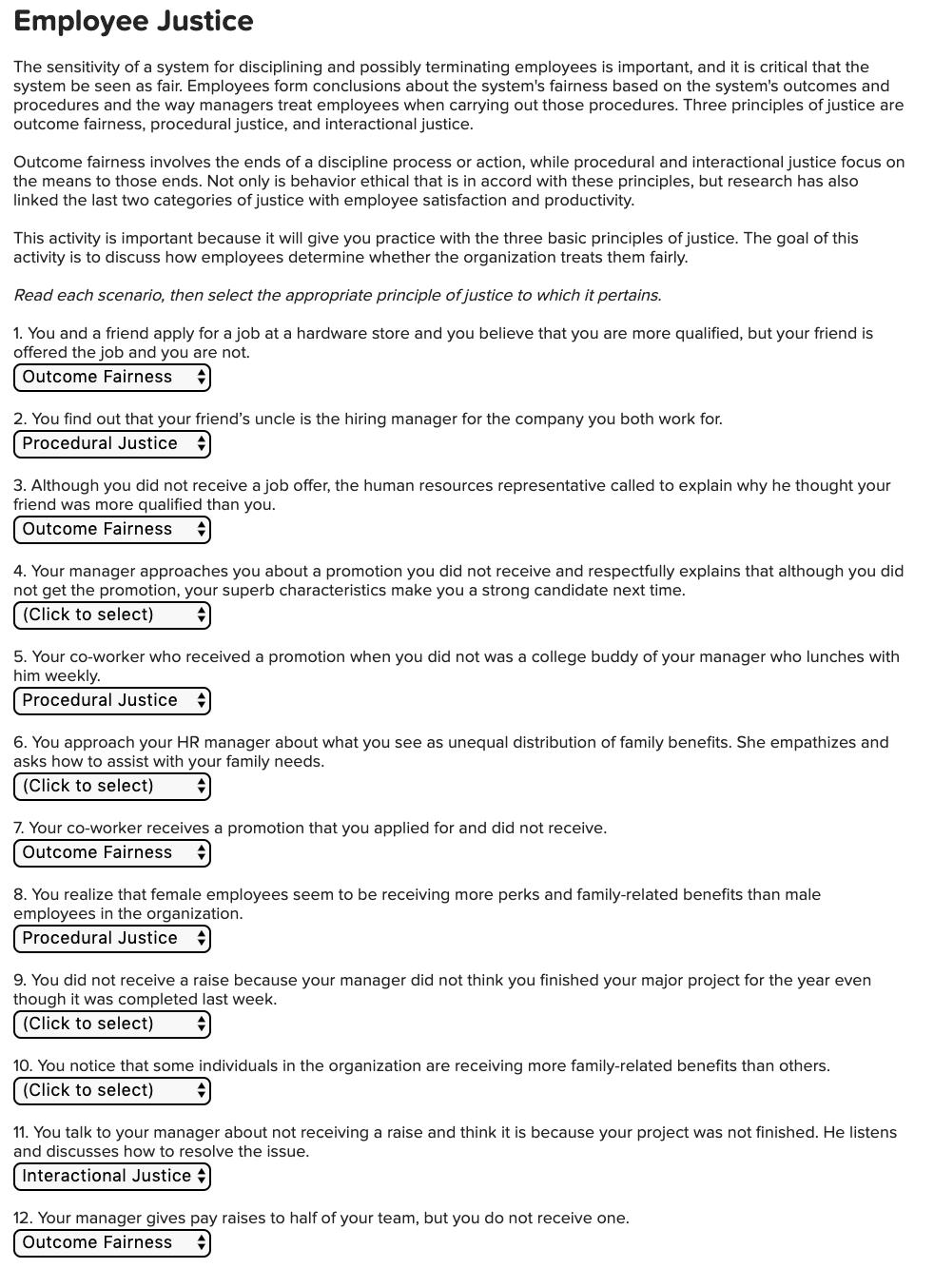Answered step by step
Verified Expert Solution
Question
1 Approved Answer
Employee Justice The sensitivity of a system for disciplining and possibly terminating employees is important, and it is critical that the system be seen

Employee Justice The sensitivity of a system for disciplining and possibly terminating employees is important, and it is critical that the system be seen as fair. Employees form conclusions about the system's fairness based on the system's outcomes and procedures and the way managers treat employees when carrying out those procedures. Three principles of justice are outcome fairness, procedural justice, and interactional justice. Outcome fairness involves the ends of a discipline process or action, while procedural and interactional justice focus on the means to those ends. Not only is behavior ethical that is in accord with these principles, but research has also linked the last two categories of justice with employee satisfaction and productivity. This activity is important because it will give you practice with the three basic principles of justice. The goal of this activity is to discuss how employees determine whether the organization treats them fairly. Read each scenario, then select the appropriate principle of justice to which it pertains. 1. You and a friend apply for a job at a hardware store and you believe that you are more qualified, but your friend is offered the job and you are not. Outcome Fairness 2. You find out that your friend's uncle is the hiring manager for the company you both work for. Procedural Justice 3. Although you did not receive a job offer, the human resources representative called to explain why he thought your friend was more qualified than you. Outcome Fairness 4. Your manager approaches you about a promotion you did not receive and respectfully explains that although you did not get the promotion, your superb characteristics make you a strong candidate next time. (Click to select) 5. Your co-worker who received a promotion when you did not was a college buddy of your manager who lunches with him weekly. Procedural Justice 6. You approach your HR manager about what you see as unequal distribution of family benefits. She empathizes and asks how to assist with your family needs. (Click to select) 7. Your co-worker receives a promotion that you applied for and did not receive. Outcome Fairness 8. You realize that female employees seem to be receiving more perks and family-related benefits than male employees in the organization. Procedural Justice 9. You did not receive a raise because your manager did not think you finished your major project for the year even though it was completed last week. (Click to select) 10. You notice that some individuals in the organization are receiving more family-related benefits than others. (Click to select) 11. You talk to your manager about not receiving a raise and think it is because your project was not finished. He listens and discusses how to resolve the issue. Interactional Justice 12. Your manager gives pay raises to half of your team, but you do not receive one. Outcome Fairness
Step by Step Solution
★★★★★
3.47 Rating (150 Votes )
There are 3 Steps involved in it
Step: 1
Principle of Justice for each scenario 1 You and a friend apply for a job at a hardware store and yo...
Get Instant Access to Expert-Tailored Solutions
See step-by-step solutions with expert insights and AI powered tools for academic success
Step: 2

Step: 3

Ace Your Homework with AI
Get the answers you need in no time with our AI-driven, step-by-step assistance
Get Started


